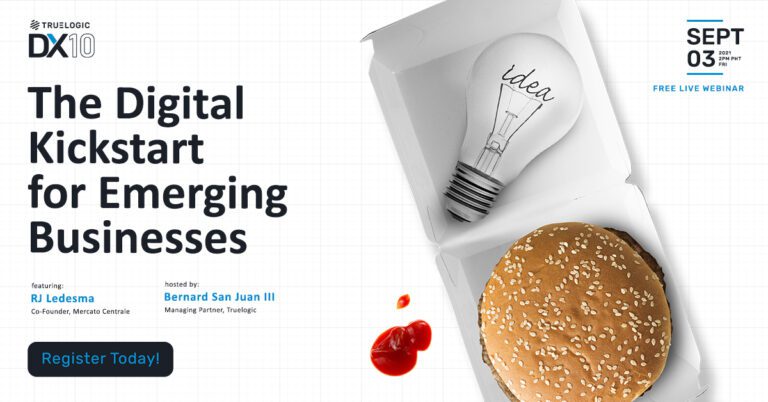EVOLUTION IN THE DIGITAL AGE
“Survival of the fittest.” This is a phrase that originated from the concept of Natural Selection. Many people now (incorrectly) use the concept to summarily describe the theory of evolution. The problem with evolution is that it happens slowly and over a long span of time. This makes it virtually impossible to measure, observe, and reproduce in a lab.
Another concept I’d like to discuss is Moore’s law which roughly states that “technology doubles itself every 2 years.” The concept was developed by Gordon Moore (one of the founders of Intel). He made this statement after he observed that the components in integrated circuits were doubling every year translating into double memory and processing power every 2 years. With technology developing at an exponential rate, it makes for a dynamic ever changing environment.
Put these two concepts together and what you have is a good description of the challenge facing hundreds (if not thousands) of IT and Web based organizations. You have an incompatibly slow strategy (Evolution) against an incredibly challenging environment (Moore’s law).
The primary mechanism of evolution is adaptation, and this is exactly what modern day digital business need to do – adapt – at an incredible rate. Not to thrive, but to survive. Digital marketing is bound to the reality of Moore’s Law because processing speed and memory make it possible to develop more and more applications and technologies that have the potential to change the way we live.
How does this relate to Online Marketing and SEO? It does in several ways actually. Google and other search engines are dependent on these emerging technologies to deliver faster and better services to their users. As technology allows for faster processing of larger amounts of data, search engines get smarter by employing more complex algorithms, and even multiple complex algorithms that attempt to mimic and at times, pre-empt human appreciation.
Whether you’re a beginner or an expert, everyone in Search Engine Marketing knows an algorithm update always leads to the “Google dance.” So, many companies often face this question: How do you stay on top of an industry that is always changing?
I humbly offer these solutions:
FORESIGHT
This is a gift as much as it is a skill. All companies must have vision, or must learn to surround itself with people that have it. What your organization is capable of achieving is limited only by your imagination. If you can visualize it, then articulate it, you (and your team) can make it happen. Sometimes foresight is a product of experience. Do not be afraid to bring in more talented and experienced people than the ones you currently have.
FLEXIBILITY
Adaptation is a slow, painful process and more often than not, companies find themselves on the tail end of change and innovation rather than the spearhead. This is why most companies react to situations instead of creating systems, processes and procedures that prevent problems. In the worst cases, some companies do not only react slowly… they are oblivious to the changing demands of their environment.
One of the key features that many “Breakthrough” dynamic companies have is that they are organizationally flat. These companies will have anywhere from 3 to 5 reporting lines, max. The advantage of “flat-ness” is it allows for better communication, and quick decision-making.
Companies that intend to play in the dynamic arena of the website development services and e-commerce need to be flexible to adapt quickly to changes in the digital environment. Companies that are inflexible often resist change and become victims of circumstantial changes rather than be pioneers of innovation. Flexible companies innovate, use all the brainpower available in the company, respect the voice of all contributors, and act with a communal will to achieve result that benefit the whole.
CURIOSITY
Curiosity is a genuine hunger for learning. The by-product of curiosity is observation. A curiosity of the trends, technologies, and human behaviours together with the discipline to observe these phenomena and derive conjectures of future trends, is a key ability. I’ll repeat that to reinforce its importance: the ability to predict future trends based on observations of the present is a key ability!
We’ve sacrificed many websites to the altar of algorithm change. But these were necessary sacrifices in our A-B testing of how the algorithm was behaving at that time. In order to identify the best strategy for dealing with change, we observed, listened (or in our case, read resources, blogs, forums and publications relevant to our industry), and acted with a united conviction of the best course of action that would drive the best results for ourselves and our clients.
Place genuinely curious (and they also tend to be naturally passionate) people in your organization. They can spell the difference between you being the innovator or just a bandwagon passenger.
CHAMPION
Have you heard of the “Genovese syndrome?” The Genovese syndrome is a social phenomenon where if no single person is clearly and explicitly accountable to an action, no action will be taken.
When your organization is managing change, someone must be in charge of “sounding the charge.” If the change is important, it must be championed. It cannot be left to a “crowd” to proactively drive the change. Leadership is a natural human social phenomenon, and never is it more needed than in the face of change.









